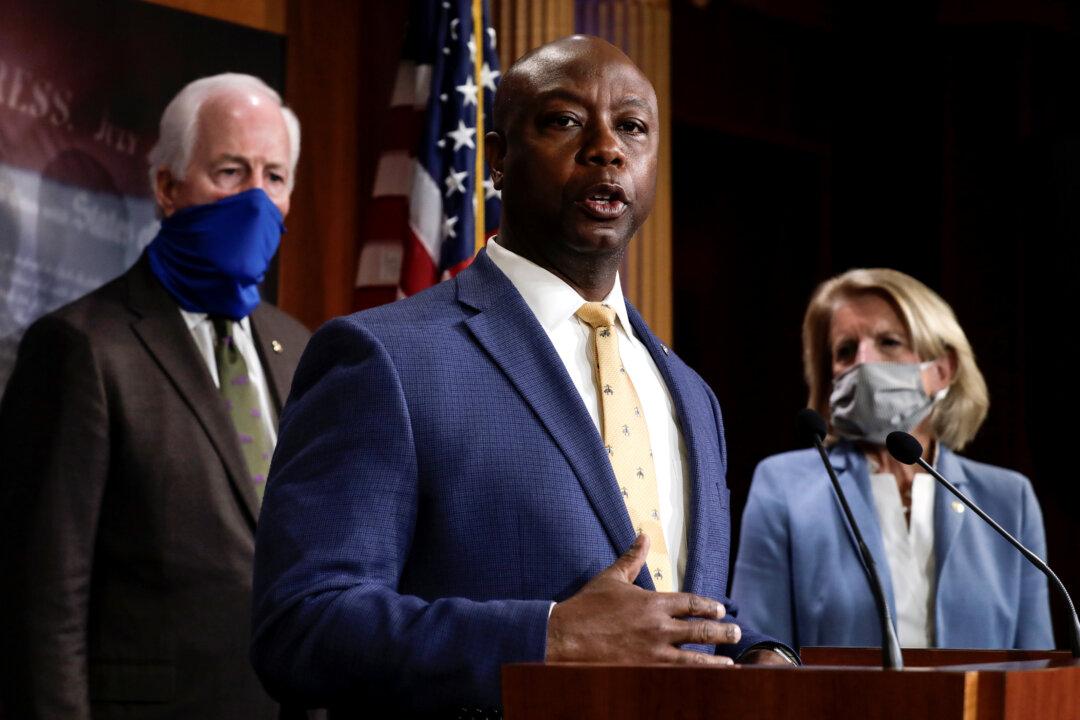U.S. Senator Tim Scott (R-S.C.) unveiled his law enforcement reform bill Wednesday in response to the nation-wide protest against police brutality fueled by the killing of George Floyd. Scott acknowledged that his bill may not go as far as Democrats want, however, supporting it is the first step to negotiating the change people want to see.
The South Carolina senator denounced the idea that police reform has to mean choosing sides.





